Imagine yourself scaling a mountain. The peak represents your dream career, and the path leading up is paved with challenges and opportunities. To reach the summit, you need the right gear (skills and knowledge), a clear map (goals and strategies), and most importantly, the unwavering determination to keep climbing. This determination is fueled by personal development – the ongoing process of refining your mindset, habits, and productivity to become the best version of yourself professionally.
Personal development isn’t a luxury; it’s a necessity. Gone are the days of linear career paths. Now, agility, adaptability, and a thirst for continuous learning are key differentiators.
The Foundation: Cultivating a Growth Mindset
At the core of personal development is the concept of mindset. Stanford psychologist, Carol Dweck differentiates between a fixed mindset and a growth mindset. A fixed mindset views intelligence and talent as static traits. Challenges are seen as threats, and setbacks as proof of inadequacy. In contrast, a growth mindset embraces challenges as opportunities to learn and grow. It believes intelligence and abilities can be developed through effort and perseverance.
The good news? Our mindsets are not set in stone.
Before we move on, here are some strategies to cultivate a growth mindset:
- Embrace Feedback: View constructive criticism as a roadmap for improvement, not a personal attack. Actively seek feedback from mentors, colleagues, or even performance reviews.
- Reframe Challenges: Instead of asking “Why did I fail?” ask “What can I learn from this experience?” Approach challenges with a “figure-it-out” attitude.
- Celebrate Effort: Acknowledge and reward yourself for the hard work you put in, not just the end results. This fosters a sense of accomplishment and motivates continued effort.
Studies show that individuals with a growth mindset are more likely to persevere through difficulties, take calculated risks, and ultimately achieve higher levels of success. They are also more open to learning new skills and adapting to change – essential qualities for thriving in today’s dynamic job market.
Habits: The Building Blocks
Habits are the invisible architects of our lives. They are the small, consistent actions that shape our daily routines and ultimately, our long-term outcomes. The key to building positive habits is to focus on the “how” rather than just the “what.”
Start by identifying a specific, achievable habit you want to cultivate. For example, “I will spend 30 minutes learning a new skill each day.” Break down large goals into smaller, manageable steps. This increases your sense of accomplishment and motivates you to continue.
Charles Duhigg, in his book “The Power of Habit,” highlights the “habit loop” consisting of a cue, a routine, and a reward. Identify the cue that triggers your desired habit. For example, the sound of your alarm could be the cue to get out of bed and exercise. Establish a clear routine – your morning workout – and reward yourself for completing it – perhaps a healthy breakfast or a sense of accomplishment.
Building new habits takes time and consistent effort. Don’t be discouraged by occasional slip-ups. View them as learning experiences and recommit to your goals. Track your progress using a habit tracker app or simply by crossing off completed days on a calendar. Seeing your progress visually is a powerful motivator.
Over time, positive habits become ingrained in your daily routine. You become more efficient, productive, and ultimately, achieve greater career success.
Strategies for Peak Productivity
- Time Management vs. Energy Management: Let’s face it, we all have 24 hours in a day. The key to maximizing productivity lies not in managing time, but in managing your energy levels. Identify your peak energy times and schedule demanding tasks for those periods. Allow yourself breaks throughout the day to recharge and avoid burnout.
- Prioritization is Key: Not all tasks are created equal. Learn to prioritize effectively. The Eisenhower Matrix, a productivity tool, categorizes tasks based on urgency and importance. Urgent and important tasks are tackled first, while less urgent tasks can be delegated or scheduled for later.
- The Power of Saying No: Learning to say “no” protects your time and energy for the things that truly matter. Don’t be afraid to politely decline requests that don’t align with your priorities or stretch you too thin. Explain your reasoning clearly and offer alternative solutions if possible.
- Technology: Friend or Foe?: Technology can be a powerful productivity tool, but it can also be a major distraction. Utilize apps and tools that help you focus on specific tasks, like website blockers for social media during work hours. Schedule designated times to check emails and messages to avoid constant interruptions.
Personal development is a lifelong journey. The skills and knowledge that propelled you to your current position may not guarantee future success. Embrace Curiosity, formal and informal learning, and learning from failures.
Personal development is among other things not a destination; it’s a continuous voyage of self-discovery and improvement. Remember, the most powerful tool you possess is yourself. Invest in your personal development, and watch your career soar to new heights.
Here are some practical steps to get you started:
- Self-Assessment: Reflect on your strengths, weaknesses, career goals, and areas for improvement.
- Develop a Personal Development Plan (PDP): Outline specific, measurable, achievable, relevant, and time-bound (SMART) goals for your personal development journey.
- Find a Support System: Surround yourself with positive individuals who encourage your growth. Consider a mentor or join a professional development group.
Celebrate your victories, big and small, and don’t be discouraged by setbacks. With dedication and the right tools, you can unlock your full potential and achieve remarkable things in your career.
For more articles, visit OD Blog.






